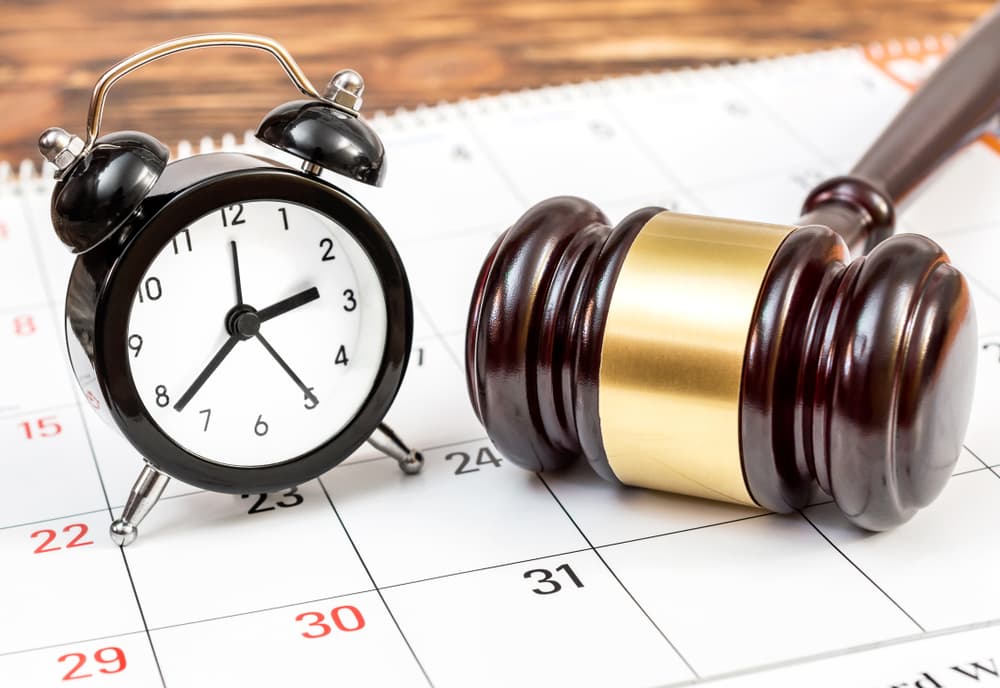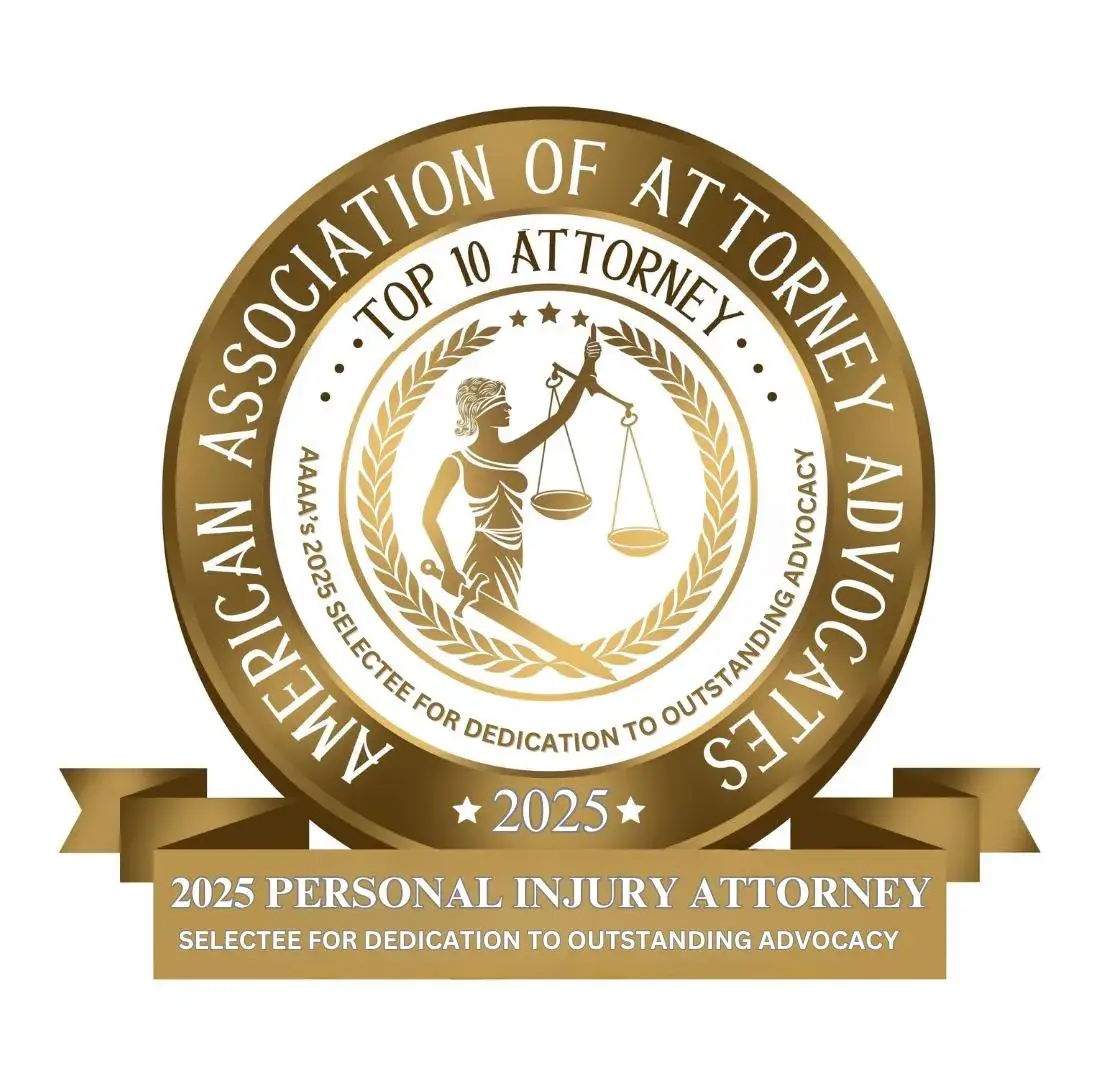
How Long After an Accident Can You Claim an Injury in Bergen County?
In New Jersey, you generally have two years from the date of an accident to file a personal injury claim. This is known as the statute of limitations. However, the answer is rarely that simple. The clock doesn’t always start when you think it does, and for some claims, the window to act is much shorter—sometimes as little as 90 days.
This is especially true if your injury wasn’t immediately obvious, if a child was involved, or if the accident involved a government vehicle or property, like a town-owned vehicle in Hackensack or a poorly maintained public sidewalk in Teaneck.
Figuring out which deadline applies to you shouldn’t be your burden while you are recovering from an injury. Let our Bergen County personal injury attorneys team at Maggiano, DiGirolamo & Lizzi, P.C. manage these critical deadlines. Call us at (201) 585-9111 for a free consultation.
Table of contents
- The Two-Year Deadline: Why Does It Exist?
- When the Clock Starts Ticking Later: The “Discovery Rule”
- The 90-Day Warning: The Most Urgent Deadline You Need to Know
- Special Rules for Children and the Mentally Incapacitated
- Your Car Is Damaged, But You Feel Fine: Property Damage vs. Personal Injury
- Why Timing Matters: How Delays Quietly Undermine a Valid Claim
- Frequently Asked Questions About Injury Claim Timelines in Bergen County
- Don’t Let the Clock Run Out
The Two-Year Deadline: Why Does It Exist?
The primary law governing most injury claims in New Jersey is N.J.S.A. 2A:14-2(a). It sets a two-year limit for filing a lawsuit.
That means, for example, if you were injured in a car accident on the Palisades Parkway on July 1, 2025, you must file a lawsuit by July 1, 2027. Missing this deadline, even by a single day, typically means the court will refuse to hear your case, and your right to seek compensation is permanently lost.
The legal system sets these time limits for practical reasons:
- Preserving Evidence: Over time, evidence degrades. Witness memories become unreliable. Physical evidence, like skid marks on a road in Englewood Cliffs or a broken stair in a Fort Lee apartment building, are repaired or disappear. Surveillance footage is quickly erased. The law encourages timely action while evidence is still fresh.
- Allowing Closure: It provides the at-fault party with a point at which they no longer have to worry about a lawsuit from a past event.
When the Clock Starts Ticking Later: The “Discovery Rule”
After an accident, adrenaline can mask pain. Some injuries, like a herniated disc or a traumatic brain injury, have symptoms that don’t appear for days, weeks, or even months. You might feel “fine” at first, only to have debilitating pain flare up on a cold morning. A common example is whiplash, where symptoms take time to fully develop.
New Jersey law understands this. The “discovery rule” is an exception to the two-year deadline. It’s a legal concept that simply means the clock doesn’t start until you know, or reasonably should know, that you’ve been injured and that the injury was potentially caused by someone else’s actions.
How It Works
This rule states that the two-year clock does not begin to tick until the moment you discover your injury, or reasonably should have discovered it.
- Example: You have a slip and fall in a Ridgefield grocery store in January. You feel sore but brush it off. In April, you experience severe back pain and a doctor diagnoses a spinal injury directly linked to the fall. Under the discovery rule, your two-year clock might start in April, not January.
Why This Is Complex
Proving when you should have reasonably discovered the injury might become a point of contention. An insurance company might argue you should have known sooner. This is not a determination you should make on your own, especially when dealing with the diverse populations in communities like Teaneck, which includes a large Orthodox Jewish community, or the Hispanic and African American communities in Hackensack and Englewood, where cultural and language barriers can sometimes add another layer of complexity. Having a legal team that understands these nuances is important.
The 90-Day Warning: The Most Urgent Deadline You Need to Know
As we mentioned before, if your injury was caused by any public or government entity, the standard two-year deadline does not apply in the same way. You are facing a much more immediate deadline.
What is a “Government Entity”?
This can include a wide range of public bodies and property, which are common sights in the varied landscape of Bergen County.
- A town-owned vehicle (e.g., a sanitation truck in Lodi, a police car in Palisades Park).
- A NJ Transit bus or train.
- A poorly maintained public road with potholes in Teaneck.
- A slip and fall on government property, like a post office, public school, or municipal building in South Hackensack.
The 90-Day Notice of Claim
Before you can file a lawsuit against a government body, you must first file a formal “Notice of Claim” with the correct government agency. In most cases, you have just 90 days from the date of the accident to file this notice under the New Jersey Tort Claims Act.
This notice is like a mandatory RSVP to a legal proceeding; failing to send it on time usually means you lose your right to sue, regardless of the two-year statute of limitations. This is a strict deadline that applies across all communities, from the suburban streets of Englewood Cliffs to the industrial areas of Teterboro and Moonachie.
What Must Be Included in a Tort Claim Notice?
The notice must be submitted to the correct public agency and must include:
- Your full name and address
- The exact date, time, and location of the incident
- A brief description of what happened
- A list of injuries and damages
- A general estimate of any financial losses
- The names of any public employees involved, if known
It must be in writing, signed, and delivered to the appropriate agency—not just dropped off at a local office.
This is where people often run into problems:
- Sending the notice to the wrong entity (e.g., to the town when it was actually a county truck)
- Leaving out required details
- Missing the 90-day deadline because they assumed the process was informal
Once the notice is submitted, the government entity has up to six months to investigate. You generally can’t file a lawsuit until this waiting period passes. If the notice isn’t submitted on time, you lose the right to sue, even if the facts are on your side.
Our Role
Identifying the responsible entity and filing this notice correctly is a detailed process. We handle the investigation to determine if a government entity is involved and ensure this critical first step is taken care of, protecting your rights from the very beginning.
Special Rules for Children and the Mentally Incapacitated
The Concept of “Tolling”
The law recognizes that minors cannot file lawsuits on their own behalf. The legal principle of tolling pauses the statute of limitations clock.
How it Works for Minors
For a child injured in an accident in New Jersey, the two-year clock is paused until their 18th birthday. This means they generally have until their 20th birthday to file a personal injury lawsuit.
Why This Matters
While the deadline is extended, waiting is rarely a good idea. As mentioned earlier, evidence disappears over time. It is almost always better for a parent or guardian to pursue a claim on the child’s behalf soon after the accident occurs. This is true for families in all of Bergen County’s diverse communities, whether it’s the growing Korean population in Fort Lee and Palisades Park or the multicultural families in Hackensack and Teaneck.
Mental Incapacity
Similarly, the clock may be tolled for individuals who are mentally incapacitated and unable to understand their legal rights at the time of the accident. The clock begins when they regain their mental capacity.
Your Car Is Damaged, But You Feel Fine: Property Damage vs. Personal Injury
Is the Deadline the Same for My Car and My Body?
Many people assume the timeline for filing a claim for vehicle damage is the same as for a physical injury. They are different.
The Two Timelines:
- Personal Injury: As we’ve covered, this deadline is **two years**.
- Property Damage: In New Jersey, you have a much longer **six years** to file a claim for damage to your personal property, such as your car, under N.J.S.A. 2A:14-1.
The Danger of Waiting
Do not let the longer property damage deadline give you a false sense of security about your potential injury claim. Just because you have six years to sort out your car repairs does not mean you have that long to address the pain that might show up later. The two-year clock for your injury claim starts ticking on the day of the accident (unless an exception applies).
Why Timing Matters: How Delays Quietly Undermine a Valid Claim
Most insurance adjusters aren’t trying to be dishonest, but they do have structured workflows that may not prioritize urgency unless there’s a clear reason to move quickly. When your claim involves pain that worsens over time, or symptoms that take weeks to fully show, this slow pace could work against you if you’re not keeping track of the legal calendar.
Here’s how delays might spiral into a larger problem:
1. Multiple Rounds of Requests
Adjusters may request medical records, bills, follow-up documentation, and clarifications. These are reasonable steps, but they take time. If months pass while you’re waiting on back-and-forth paperwork, the legal filing window may quietly shrink.
2. Negotiation Fatigue
Some people are understandably eager to resolve their claim and move on. If negotiations stall—without bad intent on either side—it’s easy to let time slip by. Before you know it, you’re within months or even weeks of the statute of limitations.
3. Assumption That Filing a Claim = Preserving Your Rights
Submitting a claim with an insurer does not pause the statute of limitations. The only way to formally preserve your legal rights is to file a lawsuit in court before the deadline expires.
This doesn’t mean the insurer is doing something wrong. It just means you and your legal team must track the legal deadlines separately from the insurance process.
We work alongside insurance adjusters regularly and respect their role. But our job is to make sure that your legal rights don’t quietly expire during a slow-moving claim. That’s why we keep our own clock—and file when necessary to protect your claim, even if negotiations are still ongoing.
Frequently Asked Questions About Injury Claim Timelines in Bergen County
What if the insurance company is already talking to me and making an offer? Do I still need to worry about the two-year deadline?
Yes. As we alluded to earlier, talking to an insurance adjuster and filing a claim with the insurance company is not the same as filing a lawsuit. An insurance company can delay, make a low offer, and run out the clock on your statute of limitations. The deadline for filing a lawsuit is separate and absolute.
I was in an accident in Fort Lee, but the other driver lives in New York. Does that change the deadline?
No. The statute of limitations is determined by the state where the accident occurred. If your accident happened anywhere in Bergen County or the rest of New Jersey, the two-year New Jersey deadline applies, regardless of where the other parties live.
Can I get an extension on the statute of limitations?
Generally, no. Except for the specific legal exceptions like the discovery rule or tolling for minors, the court does not grant extensions. The deadline is strict.
Does my own car insurance (PIP) have different deadlines?
Yes, and this is an important distinction. Your Personal Injury Protection (PIP) coverage has its own set of deadlines for notifying the carrier and submitting medical bills. You should notify your own insurance company of the accident promptly, often within days, to ensure your medical bills are covered while your injury claim is pending.
I was a passenger in an Uber/Lyft accident in Edgewater. What is my deadline?
The two-year statute of limitations still applies to your injury claim. However, rideshare cases involve multiple layers of insurance coverage. It’s important to have a legal team that understands how to deal with the driver’s insurance, Uber/Lyft’s corporate insurance policy, and any other parties involved to ensure all avenues for compensation are pursued before any deadlines expire.
Don’t Let the Clock Run Out
Worrying about legal calendars and hidden deadlines is the last thing you need. At Maggiano, DiGirolamo & Lizzi, P.C., our job is to take that burden from you. We manage the clock, we handle the paperwork, and we build your case, so you can focus on what matters most: your health and your family.
If you’ve been injured in Bergen County, let us provide the clarity and direction you need. Call us today at (201) 585-9111 for a no-cost, confidential consultation.



















